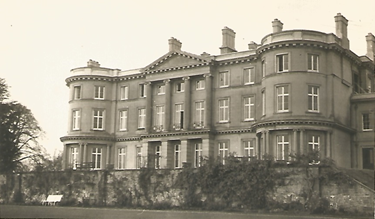BOOK LAUNCH: THE COMMON PLACE BOOK OF JOHN GWIN
BOOK LAUNCH: THE COMMON PLACE BOOK OF JOHN GWIN
The book is
available in paperback or hardback, xii + 212 pages, illustrated. Copies can
also be ordered through the Society’s web site at http://www.southwalesrecordsociety.co.uk/ or
by post: £18 paperback, £28 hardback for addresses in the UK, with reductions
for members of the Society. Complete and return the form to the West Glamorgan
Archive Service, Civic Centre, Oystermouth Road, Swansea SA1 3SN. J
His commonplace book is a treasure trove of medical remedies, snippets of local and family history, notes on the management of the Worcester estates, poetry by the leading Puritan William Wroth, advice on the choice of marriage partners, tips on good husbandry, and details of the ownership of church pews and the repair of the churchyard wall. It offers us an unparalleled insight into the cultural and intellectual world of south-east Wales in a period of civil war and continuing religious and political upheaval.
|
|
|
|
|
(name)
.......................................... ......... ..........................
(address)
....................................................... ........... .......
................. .... ... .... .... ... .... .... ... .... .... ... ..
... .... ... ......................................................
...................................... .............. ........... ..... ...
...........
... ...... .................................................
............................................ ..(postcode)....
................... ....
I enclose cheque made payable to ‘South Wales Record Society’ for ..............
In case of query please give your telephone number and/or email address :
...................... ..............
Gwin synopsis
John Gwin lived at
Llangwm near Usk in the middle years of the seventeenth century. One of the
county’s lesser gentry, he worked for the high-profile Catholic Marquess of
Worcester: but he had friends and relatives among the county’s leading
Puritans. He was insatiably curious, a keen fruit farmer, interested in
scientific and medical developments, a devoted family man, an energetic
churchwarden. All this is reflected in his commonplace book, the notebook in
which he jotted down things he wanted to remember. The book is a treasure trove
of medical remedies, snippets of local and family history, notes on the
management of the Worcester estates, poetry by the leading Puritan William
Wroth, advice on the choice of marriage partners, tips on good husbandry, and details
on the ownership of church pews and the repair of the churchyard wall. It
offers us an unparalleled insight into the cultural and intellectual world of
south-east Wales in a period of civil war and continuing religious and
political upheaval.
Madeleine Gray is Professor Emerita of Ecclesiastical History at the University of South Wales. She has close links with a number of heritage and community organisations, including the Church Monuments Society. She has published extensively on late medieval and early modern history with a particular focus on visual and material evidence for the history of religious belief and practice. She appears regularly on television and radio, and is currently working on a survey of medieval tomb carvings in Wales.
Tony Hopkins was formerly Gwent County Archivist. He took semi-retirement in 2019 since when he has worked part-time for Gwent Archives as a cataloguer. Tony currently edits The Monmouthshire Antiquary and Gwent Local History and edited a previous volume for SWRS on Muster Rolls for Monmouthshire in the Tudor period. He also co-edited the medieval volume of the Gwent County History series. Tony has published numerous articles relating to the history of Gwent and is the author of two books on Neath, his native town.
Alun Withey is a senior lecturer in history at the University of Exeter. He is a historian of medicine and the body in the long eighteenth century, and his books have included studies of medicine in early modern Wales, fashioning the body in the eighteenth century and, most recently, the history of facial hair. Alun is a BBC/AHRC 'New Generation Thinker' and has appeared widely on radio and television. His interest in John Gwyn's commonplace book goes back to 2006 and was the topic of his undergraduate dissertation.
... .... ... ......................................................
...................................... .............. ........... ..... ...
...........



